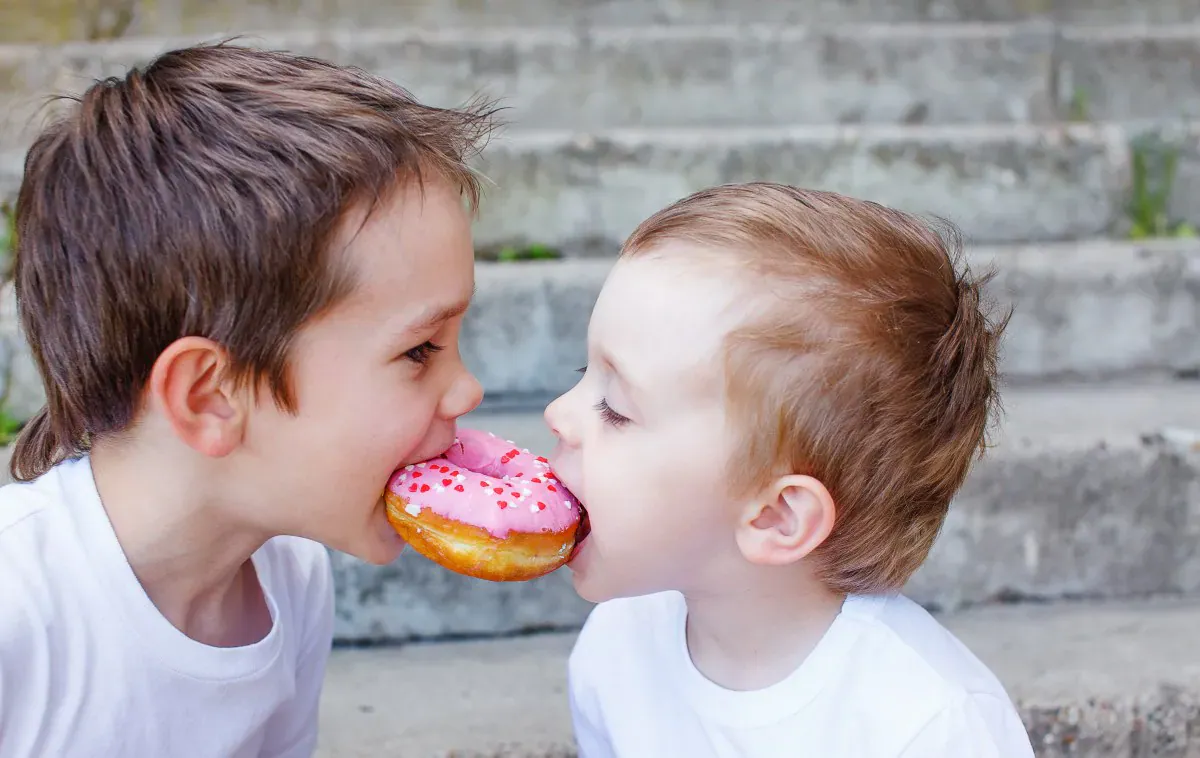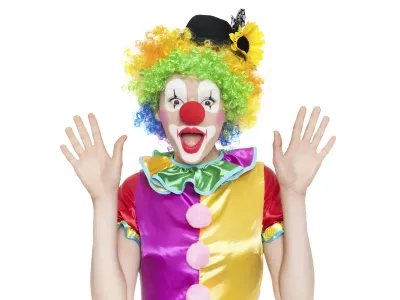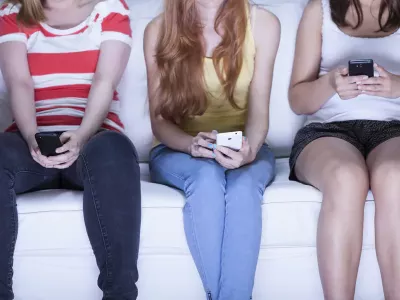What if kids can't bear to share?

Sharing and taking turns are social skills, and not all children will develop these skills at exactly the same age, in the same time-frame or as easily as others.
But a recent study which followed a group of children into adulthood found that kindergarten kids who were more inclined to share and cooperate with others were more likely to succeed in later life. (And less likely to be arrested, use drugs or drop out of high school.)
Just like life skills, such as doing up shoelaces or eating with cutlery, social-emotional skills can be hard for little kids to learn. Yet while we might understand we need to give children the chance to practise tying their laces, we may not understand that they also need the chance to learn and practise social skills.
In ‘toddlerhood world’, children are naturally quite self-centred. They don’t have the ability to see things through the eyes of someone else who might, for example, want to have a turn with the toy they’re playing with. It’s not that toddlers are thinking: “I know I should share but I’m choosing not to”. It doesn’t even occur to them, because they’re not yet at that developmental stage.
In a very young child’s world, objects can be hugely important and the subject of strong feelings of attachment. You only have to accidentally separate a child from their favorite stuffed toy to see that in action. So it’s important to have reasonable expectations and ones that are age-appropriate.
Learning to share isn’t always about toys and games. Sometimes it’s about personal space: for example, where you sit in the car, and being mindful not to disrupt others’ games or activities.
Sometimes it’s about sharing an adult’s attention. There are some kids who are terrific when they’re at the centre of the universe and yet they find it very difficult when the focus is on a sibling or another grandchild. And then you’ve got the conflict that often crops up when playing board games, using tablets, screens and smartphones, and watching TV. But sharing behaviours are an important set of life skills that allow people to function properly in families.
If you think about the kind of parenting that will encourage kids to share, it’s very important that they see it consistently demonstrated or modelled. So when they see a parent offering to share something (whether it’s food or attention or the TV remote control), children can see the skill of sharing in action.
Another thing that’s very important is to allow children to be part of things like offering food to a visitor or at a family gathering. You can use occasions like these to give children the opportunity to practise these skills and behaviours. Toddlers often really love to do this; in fact sometimes they’ll bring you things that you secretly wish they hadn’t, like some rocks or bottle caps!
Even if you really don’t want their half-eaten biscuit or that oddly-shaped bit of plastic they’ve found, when this behaviour occurs it gives the parent a chance to pay attention to it, and offer praise and encouragement. For example, you might say: “You’re sharing — that’s very kind of you”.
As well as letting them you this is a good thing to do and people like it, also lets them know the words for this behaviour, which helps them understand the concept.
Just one final thing to consider: when, as adults, we share our skills, wisdom and experience with others, whole communities benefit. That’s especially important when we’re talking about families, relationships and parenting. Research shows that when parents, grandparents, carers, teachers and others start sharing their experiences and knowledge after doing a parenting programme like Triple P, it helps create a more supportive environment for everyone. It says “our community values parenting” – and that’s definitely a sentiment worth sharing.

